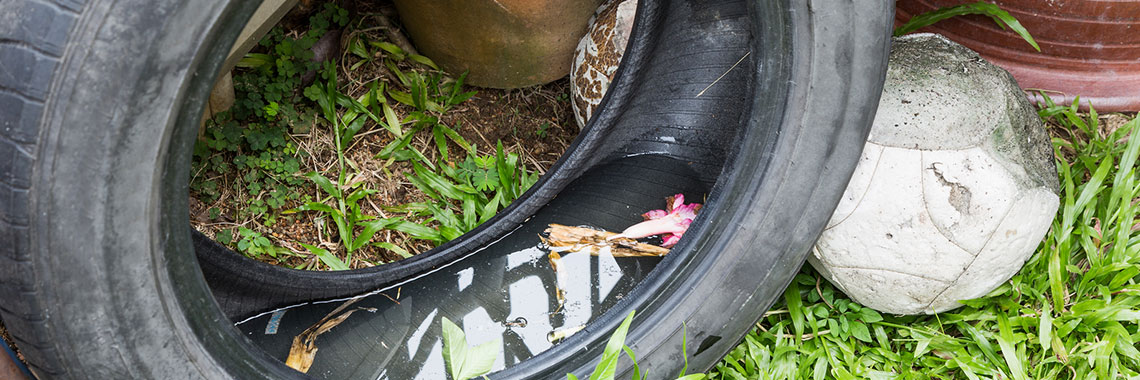
With summer on the way, it’s time to get our and enjoy the outdoors. In addition to being exposed to the hot and steamy Houston summer, you’ll also be exposed to mosquitoes and therefore mosquito bites. Mosquito bites are not only itchy but can also be a vector for a number of serious illnesses. A few of mosquito-borne illnesses you’ve surely been hearing in the media lately include Zika, West Nile, Eastern Equine Encephalitis, and St. Louis Encephalitis. These viruses are transmitted by the bite of an infected mosquito.
Transmission
When an adult female mosquito feeds on the blood of birds, horses or humans that are infected with one of these viruses, she may become infected with the virus. Upon feeding on another host, she may transmit the virus through her saliva. After becoming infected with the virus, the new host may develop symptoms or show few or no symptoms of the virus because the host may develop antibodies against the virus.
Avoidance & Prevention
The best way to avoid mosquito-borne viruses is to avoid getting bit in the first place. By removing mosquito habitat in and around your home, you are greatly reducing the likelihood of getting bit by an infected mosquito.
Remove Mosquito Habitat
The most effective way to control mosquito habitat is to empty any containers that can hold water. Ensure that the ground under your home and around your home is level and adequately drained. Mosquitoes lay their eggs in pools of stagnant water and should eliminated wherever found. Yard foggers and mosquito spray can be used to eliminate mosquitoes where they rest in shady bushes and foliage around and under your home.
To prevent mosquitoes from entering your home, keep the windows and doors closed and use air conditioning when possible. Special attention should be paid to flower pot containers that hold water. Drain them once per week to prevent them from becoming mosquito habitat.
Protect Yourself
When outside wearing long pants and sleeves, this decreases area of skin exposed for mosquitoes to feed. Use Environmental Protection Agency (EPA) registered insect repellents with one of the following active ingredients: DEET, picaridin, IR3535, oil of lemon eucalyptus or para-menthane-diol. When used as directed, an EPA-registered product ensures the EPA has evaluated the product for safety and effectiveness. EPA-registered insect repellents are even safe for pregnant and breast-feeding women.
Insect Repellants
When using these products:
- Follow the product label instructions.
- Do not spray repellent on the skin under clothing.
- If you are using sunscreen, apply sunscreen before applying the insect repellent.
Vector-borne illness, like those caused by mosquitoes are among the hardest infectious diseases to prevent and control. Prevention of mosquito bites is the only method to prevention of infection with viruses spread by mosquitoes. Taking preventative measures with clothing, insect repellent, and mosquito control around your home will decrease the chances of being exposed to an infectious disease carried by a mosquito. For more information go to CDC: www.cdc.gov/ncezid/dvbd/about.html
